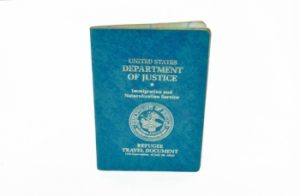
Hakeem al-Araibi Case Shows How Vulnerable Refugees Remain to INTERPOL Abuse

In February 2015, the INTERPOL Executive Committee disseminated among the organization’s member countries a new policy according to which INTERPOL would generally refuse to cooperate with governments seeking detention of refugees and asyum-seekers. Although the policy should help INTERPOL protect individuals from persecution, which the organization considers one of the primary objectives of all its activities, it has significant loopholes. One of such loopholes is that the policy does not consider refugees and asylum-seekers an exception to the INTERPOL general rule that an individual cannot learn whether there is a request for her or his arrest (known as a “red notice” or a “diffusion”) in the INTERPOL databases without the government’s consent. As a result, like other individuals, refugees and asylum-seekers often learn that there is a red notice or a diffusion against them only after they are detained due to an INTERPOL alert. An arrest may lead to a prolonged detention and potentially extradition. For refugees and asylum-seekers who find themselves in this situation, the rights provided for in the INTERPOL policy come too late.

Hakeem al-Araibi is far from the first refugee to be detained due to an INTERPOL alert since the organization introduced the policy. For example, in the summer of 2016, Italian authorities acting on an Iranian red notice detained Mehdi Khosravi, an Iranian national and human rights activist with refugee status granted by the United Kingdom. Similarly, Paramjeet Singh, a supporter of Sikhs’ right to self-determination who fled India and in 2000 was granted refugee status in Great Britain, was arrested in December 2015 due to an Indian red notice and spent two months in detention before Portugal agreed to release him.

Should we expect INTERPOL to improve the policy and stop the continuing abuse of its resources against refugees and asylum-seekers? In September 2017, the General Assembly, the body of supreme authority at INTERPOL, adopted a Resolution endorsing the Executive Committee’s policy. The Resolution, however, seems to indicate that the General Assembly is much more concerned about criminals abusing refugee status than governments abusing INTERPOL to persecute refugees and asylum seekers. While the Resolution calls upon governments and INTERPOL to do everything in their power to ensure that refugee status is not abused and to that end enhance the exchange of information in the process of examining asylum applications, it makes no reference to Article 3 of the INTERPOL Constitution, which strictly forbids the organization from participating in any activity of a political, military, religious or racial character, or to the need to protect individuals from persecution. Despite the continuing abuse of INTERPOL’s resources against refugees and asylum seekers, nothing in the Resolution calls upon INTERPOL to address the problem.
INTERPOL must make an exception and provide refugees and asylum seekers the right to know if there is information about them in the organization’s databases without obtaining prior consent from the respective governments. Otherwise, Hakeem al-Araibi will not be the last refugee-victim of INTERPOL abuse.





